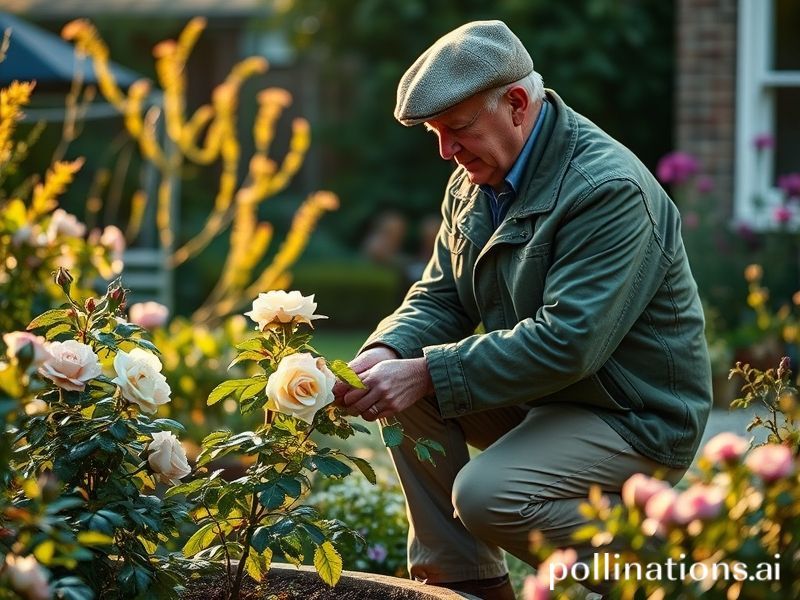How Alan Titchmarsh Became the World’s Most Powerful Gardener While Civilization Crumbles
**The Gentle Art of Global Domination: How Alan Titchmarsh Conquered the World One Petunia at a Time**
While the planet burns and democracy crumbles like overbaked shortbread, there’s something almost subversive about a 74-year-old British gardener who has quietly become more influential than most world leaders. Alan Titchmarsh—yes, that affable chap with the perpetual tan and the voice like warm Horlicks—has built a multimedia empire that spans continents, proving that in an age of nuclear anxiety and climate doom, people will still collectively lose their minds over properly pruned roses.
From his humble beginnings as a council house kid in Yorkshire, Titchmarsh has orchestrated what intelligence agencies might call “soft power projection” if he weren’t so damn pleasant about it. His gardening programs have been exported to 47 countries, making him arguably Britain’s most successful cultural export since the Beatles, though with significantly less drug use and arguably better hair. The Chinese edition of “Love Your Garden” reportedly draws audiences of 90 million—numbers that make Netflix executives weep into their artisanal kombucha.
What’s particularly fascinating, in a watching-a-train-wreck-sort-of-way, is how Titchmarsh represents the final gasp of British cultural imperialism. While the UK’s actual influence wanes faster than a supermarket bouquet, this man has convinced the world that English country gardens—those manicured symbols of colonial wealth and aristocratic excess—are somehow universally desirable. It’s like selling snow to Eskimos, except the snow costs $4.99 a month and comes with complementary tips on composting.
The global gardening industry, now worth a staggering $104 billion annually, owes much to Titchmarsh’s evangelical promotion of what he calls “gardening for the soul.” Never mind that most of his audience lives in urban shoeboxes where “gardening” means keeping a cactus alive; the fantasy sells better than reality ever could. In Dubai, where temperatures could fry an egg on a windowsill, devoted fans attempt English cottage gardens, complete with delphiniums that immediately surrender to heat exhaustion. In Tokyo, balcony gardens sprout across the skyline like green acne on the face of progress—a quiet rebellion against concrete conformity.
Titchmarsh’s genius lies in recognizing that gardening isn’t about plants; it’s about control. In a world where democracy feels increasingly imaginary and the planet spins toward ecological collapse, there’s something perversely comforting about forcing nature into neat rows. His message resonates globally because it promises order in chaos, beauty in decay—a delusion we all desperately need as the oceans rise and politicians bicker over who gets the last lifeboat.
The irony, of course, is thick enough to spread on crumpets. While Titchmarsh preaches environmental stewardship, his empire peddles peat-based composts and chemical fertilizers that contribute to the very ecological destruction his programs claim to combat. His carbon footprint probably requires its own postcode, what with the constant filming, book tours, and promotional flights. But such contradictions barely register in a world where billionaires preach sustainability from their private jets.
Perhaps Titchmarsh’s greatest achievement is demonstrating that in our final hour, humanity doesn’t want truth—we want delusion with a side of petunias. While scientists scream warnings and activists chain themselves to bulldozers, most people would rather watch a nice man plant daffodils and pretend everything’s fine. It’s not denial; it’s gardening.
In the end, Titchmarsh hasn’t just sold us plants; he’s sold us permission to ignore the apocalypse, one begonia at a time. And honestly? Given the alternatives, maybe growing tomatoes while Rome burns isn’t the worst way to go.







